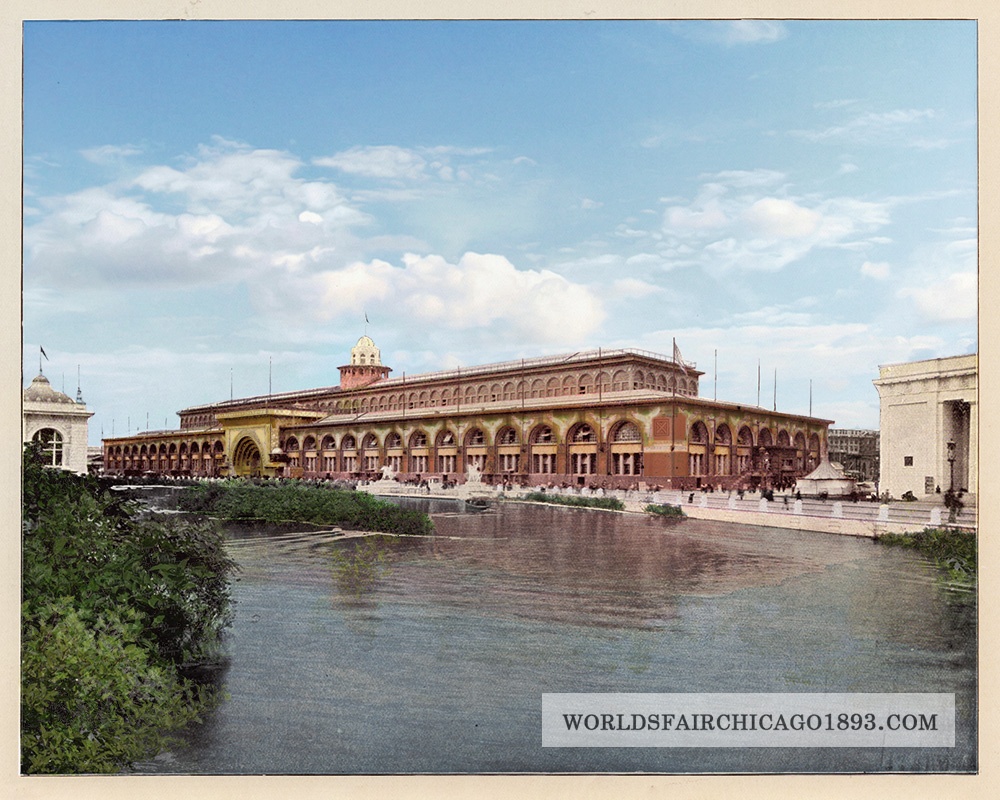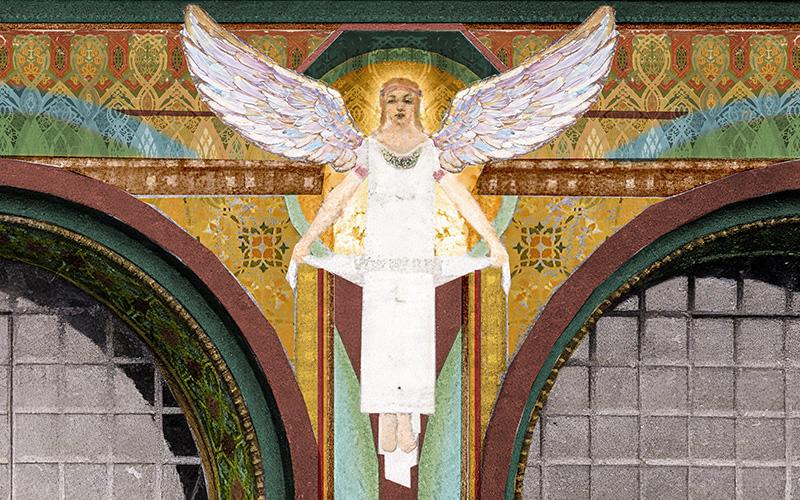Critics glorified and reviled Louis Sullivan’s renegade design for the Transportation Building at the 1893 World’s Fair. The polychromatic color scheme and the grand Golden Door received the most commentary at the time of the Columbian Exposition, and both elements continue to fascinate students of architecture today.

Louis Sullivan’s striking design for the Transportation Building featured a polychromatic façade and majestic “Golden Door” entrance on the east side. [Image from Picturesque World’s Fair. W.B. Conkey, 1894; digitally edited © worldsfairchicago.com.]
Louis Sullivan’s “Golden Door” for the Transportation Building. To the right can be seen an angel in the spandrel. [Image from Report of the Board of General Managers of the Exhibit of the State of New York at the World’s Columbian Exposition. James B. Lyon, 1894.]
“a white and gold angel in a style suggestive of Egyptian art. He holds a straight ribbon in his hands, the arms hanging full length at his side. This ribbon bears the name of some noted man who has secured fame in the worlds of travel.”
A certain “high official of the Fair” is recorded as having (unofficially) called the conventional figures “pressed angels,” while guidebooks sometimes called them the “spirits of transportation.”
Sullivan himself offered this description:
“In the center of the spandrels is placed a beautiful winged figure representing the idea of transportation. This figure is painted in light colors and will have a background of gold-leaf.”
A drawing of the “winged figure” proposed to decorate the Transportation Building façade. This is not the same as the finished design, which had wings pointing upward and head facing forward. [Image from The Graphic History of the Fair. Graphic Co., 1894.]
“Along its frieze, done somewhat after the manner of illumination in old missals, is a line of angels. This frieze is highly artistic, yet the idea of painting angels on the outside of the Transportation Building always had a humorous aspect to me—it was so suggestive of the kind of transportation we are all anxious to avoid, yet (there was a touch of the grim in this) are perhaps most exposed to when we use modern means of transportation.”
Mr. Kobbé likely had no idea of the radical transformation in transportation about to come with the advent of the automobile!
A colorized photograph of the angel in the spandrel of Louis Sullivan’s Transportation Building. [Image © worldsfairchicago1893.com.]
SOURCES
Chicago Record’s History of the World’s Fair. Chicago Daily News Co., 1893, p. 120.
Kobbé, Gustav “Sights at the Fair” Century Sep. 1893, pp. 643–655.
“Over Land and Sea” Evergreen (AL) Star Aug. 31, 1893, p. 4 (reprinted from the New York Tablet).
Rand, McNally & Co.’s A Week at the Fair. Rand, McNally & Co., 1893, p. 48.

